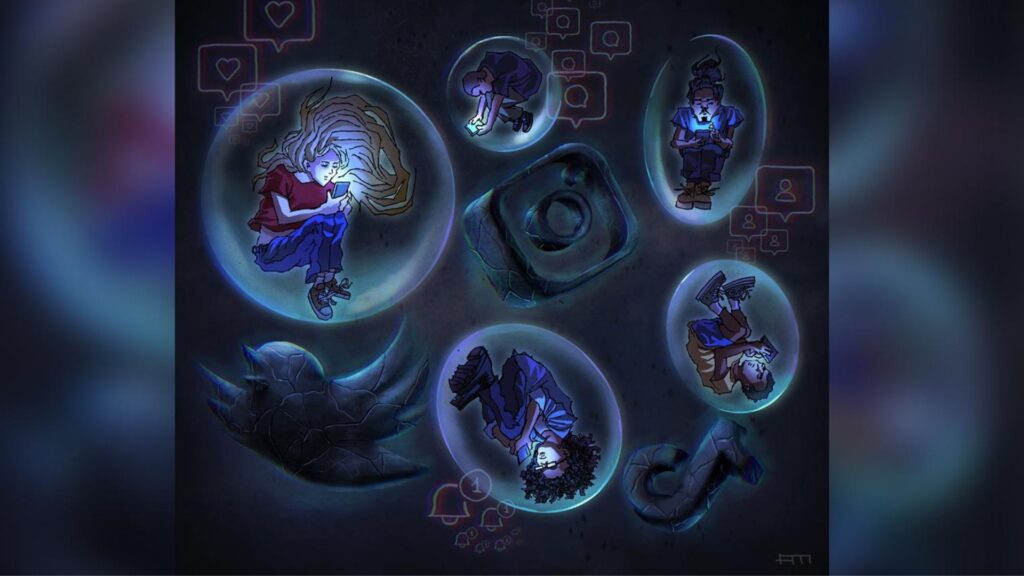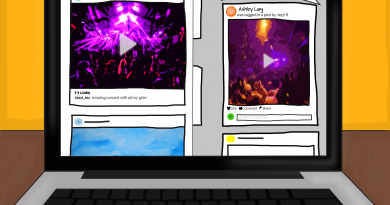Social Media And The Illusion Of Connectivity
It’s humiliating to admit that our parents were right about social media.
In May, the United States surgeon general Dr. Vivek Murthy declared loneliness, the feeling of being isolated and disconnected from your environment, an epidemic.
Even before the COVID-19 pandemic, one-in-two adults across America reported increased feelings of loneliness.
Yet today, feelings of disconnection are most prevalent among people between the ages of 15-24 who reported feeling 70 percent less social interaction.
Although several factors play into this, many have blamed social media platforms for skewing our understanding of what it means to be truly connected, and they aren’t wrong for that.
Social media is like opening the oven and getting hit with a gust of hot air all at once—it’s immersive to an overwhelming extent.
With one tap you have access to everything. From every influencer’s daily life to the terror and violence happening around the globe.
This is what people mean when they say social media connects us. Regardless of where I am, I can find out information on anyone, anything and any place.
However, that isn’t a connection. It’s fast access to endless information—and it’s addicting.
Every notification, like and comment we receive on social media injects an influx of dopamine, the “feel-good” chemical released by the brain when we engage in rewarding activities like eating and exercising, into our minds.
The same thing happens when we scroll through our curated feeds, watching highlights of people’s lives, news snippets and funny cat videos. This is not only entertaining, but it also gives the illusion of connectivity in a quick and convenient way.
Yet, the feeling is short-lived.
One moment you want to relax on your phone. Next thing you know, you’ve wasted hours scrolling mindlessly on social media and end up feeling void, disappointed and unmotivated to seek out relationships in person.
Truly fulfilling feelings of connection to people require time and intention, but all the opportunities to build a bond get eaten up by our devices.
The creators of apps like Instagram, YouTube and Tik-Tok exploit this reality to make money, a sharp contrast from the original purpose of social media: to connect.
Social media gives the illusion of soothing our need to be connected without the risk of having to leave our bubble of instant-gratification and be vulnerable.
While some people are able to bond online, it doesn’t diminish the need to connect in person, where we can make eye contact, interpret body language and experience one another’s company.
Although there are many factors that play into people feeling lonelier than ever, our reliance on technology exacerbates these feelings.
Social media is like medicine that soothes a pain but doesn’t cure the problem.




